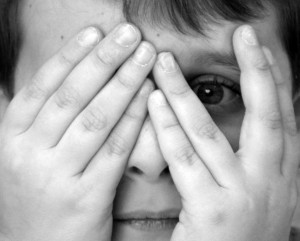There’s no doubt that the Ebola virus is deadly. It has buried thousands of helpless victims in the western region of Africa and challenged the world’s best health specialists in how best to contain its spread.
News of the tragic death of the first US Ebola victim, Thomas Duncan, made headlines for good reason. So too has the news of the two nurses who have subsequently contracted this lethal virus. But as Ebola has consumed the airwaves – particularly in the US where I’ve just spent the last two weeks – I’ve been struck less by the contagious nature of Ebola, and more by the rampant and somewhat hysterical fear it has incited.
At first I found the reactions of some people a little amusing. Like the woman who turned up in an airport in a homemade Hazmat suit. But as story after story ran took over the headlines, I began to recognize that these weren’t isolated incidents of fear run amok; they were symptoms of the potent nature of fear itself – no less contagious than any virus and far more harmful to the masses.
I couldn’t help but wonder about the long term impact on the school children whose schools were closed because an employee had flown on the same plane – though not even the same flight – as a health worker who had been infected with the lethal virus; or because their principal had traveled to Zambia, a country with no Ebola and thousands of miles from those which have it.
While I don’t know how long it will take for this virus to be contained, I’m confident that it eventually will. What concerns me more is the impact that the fear it has incited will have on the lives of those who’ve been swept up by it.
Fear is a potent emotion so left unchecked, it can spread into every corner of our lives, impairing our ability to accurately assess risk and discern legitimate threats to our safety from imagined ones.
There are many things we need to be cautious about if we want to thrive in life. Drunk driving. Online gambling. Addictive substances. Dishonest people. The list is long. Yet too often people expend far more energy worrying and safeguarding ourselves from events that are unlikely to ever happen. Contracting Ebola while living in the USA is one of them. So to all those who have found themselves stocking up on canned tomatoes or Googling “Hazmat suits,” I would simply encourage you to step back and ask yourself where fear of Ebola – or fear of anything – is keeping you from living your life fully, passionately and wholeheartedly. Mark Twain once said we suffer more from our imagination than from our reality. Terrifying ourselves with shocking images of our loved ones dying from Ebola can quickly take up residence in our psyche leaving little space for anything much else.
We live in a culture of fear. Our media thrives on it. Marketers depend on it. Fear sells papers. Fear wins votes. Fear breeds fear. So given how easy it is to become its unwitting victim, we must be increasingly vigilant about discerning between the fears that are serving us from those that are stifling us, careful not to buy into the anxieties of those around us, and intentional about not letting fear pilot our lives. Too often it does.






